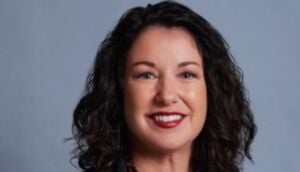Pakistan’s catastrophic floods have so far caused at least 1,134 deaths, submerged a third of the country and upended the lives of 1.2million people (according to news reports). This is the human cost of the climate crisis and our thoughts are with those affected by the disaster. (Fairtrade statement on Pakistan floods – Fairtrade Foundation)
Since mid-June, relentless monsoon rain and flooding has washed away crops before they could be harvested. Many people in Pakistan are at their most vulnerable, displaced with no shelter, having lost their livelihoods and at extreme risk of hunger. We are still working to assess the extent of the damage for Fairtrade-certified producers and will offer whatever support they need. Aid is urgently needed and delivering it will be a mammoth task, made more difficult given the damage to roads and unsafe conditions. (Pakistan floods: UK charities launch DEC disaster appeal – BBC News)
Beyond aid, world leaders need to mobilise climate finance to protect people living at extreme risk of climate-related catastrophes, which are predicted to happen more frequently and with greater severity. Last year I joined a group of Fairtrade producers to campaign at the UN climate summit. (https://www.fairtrade.org.uk/cop26-be-fair-with-your-climate-promise). Representing 1.9million Fairtrade farmers and workers, people who have done the least to cause rising temperatures but are living with the devastating realities of climate change, we called on the world leaders of high-carbon emitting countries to deliver on prior promises of $100billion in climate finance per year. We also urged them to pay for loss and damage caused by those events like the floods we’re seeing unfold before us in Pakistan. It’s worth noting that Pakistan produces less than 1% of global greenhouse gas emissions (Pakistan: CO2 Country Profile – Our World in Data). But the promised funding has yet to materialise.
People need support to rebuild after disasters and to adapt for the future, and that is why thousands of supporters signed our petition last year to direct money to communities on the climate frontline. As Benjamin-Francklin Kouamé, a cocoa farmer from Côte D’Ivoire, said during the COP26 UN conference: “Being a farmer shouldn’t be a route to poverty. My feeling is that poverty is a reason for the destruction of nature. It drives deforestation. When I am hungry, I can’t think.”
With food prices rising globally, we’re extremely concerned for those at home and overseas, whose incomes are already squeezed. For farmers they also run the risk of further losses and poor harvests due to climate change. Fairtrade provides valuable protection because of its unique minimum price guarantee, and its community premium, but even so farmers have been telling us over recent months due to the cost of living crisis, staples like bread, fertiliser and oil are rapidly becoming unaffordable.
In addition to the moral reasons to protect vulnerable communities, there is also a strong business case for investment in sustainable supply chains, to ensure our own food security and to ensure producers will stay in farming. The global economic outlook is challenging. Whilst there are fears of a recession in the UK, there is a mounting financial crisis across developing economies with currencies depreciating, high inflation and investors pulling out. All these problems are exacerbated by the fact many have fewer resources to protect them from global shocks.
But I do have hope for the future. As our Annual Report is due to be published, I’ve been reflecting on Fairtrade’s achievements last year. During extremely precarious times throughout 2021, the remarkable resilience of communities shows what is possible when power and agency is in producers’ hands. The evidence shows backing farmers by paying fair prices makes a difference; it helps equip 1.9 million Fairtrade farmers and workers in 71 countries with the means to tackle the problems and risks of the climate crisis, the pandemic, the long-term effects of low pricing and poverty – hunger, poor health, child labour, gender inequality.
Producers can have greater economic resilience within Fairtrade’s model but the harm caused to our global environment means extra investment is vital (New research finds solutions to farmer resilience amid global crises – Business Fights Poverty). This enables producers to invest in their land, to help prevent soil erosion, to plant trees to protect against landslides and reduce flood damage. With training and technology, farmers can implement environmental farm management practices that ensure food security and sustainable livelihoods. This matters to all of us – producers, businesses and consumers.
Many businesses, especially retailers and brands sourcing Fairtrade, have put welcome investment into supply chains, whether through choosing certification, funding programmes or focusing on long-term sourcing relationships, but all industries must increase their commitments to tackling climate change and inequality. Those who choose Fairtrade certification and partner with us on programmes are part of a race to the top, showing that another way of trading is not only possible, but is also essential if we are to protect people and the planet.
It is critical to maintain pressure on wealthy, high-polluting countries and match this with private sector investment to adapt to and mitigate against climate change. For this to be effective, funding must reach communities in low-income countries, swiftly and directly. Only then can people and the land become more resilient. This approach is beneficial for all of us, both in the short term and the long term – it offers us all a sustainable future.










